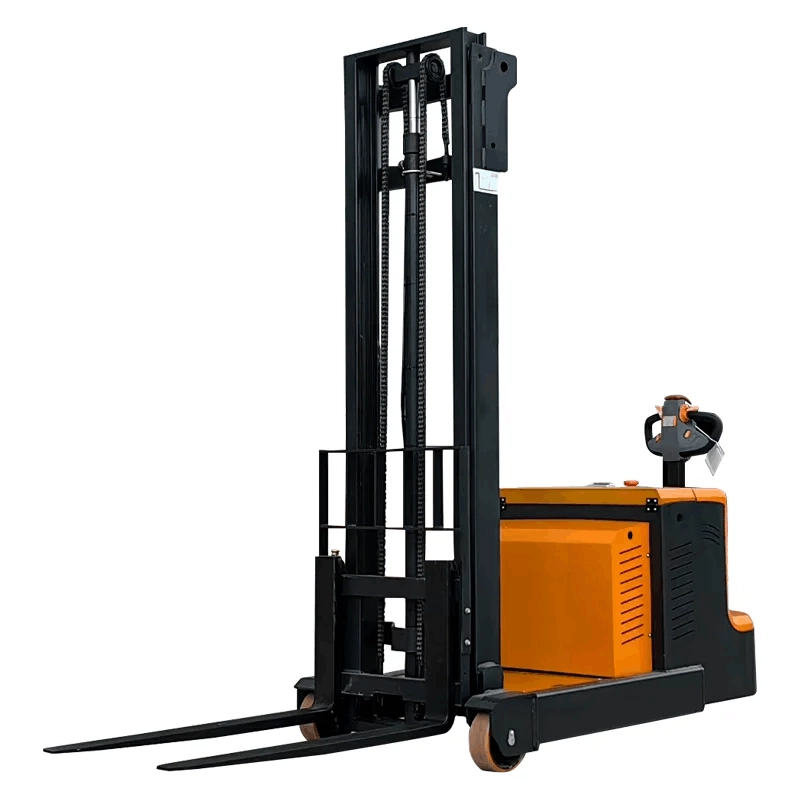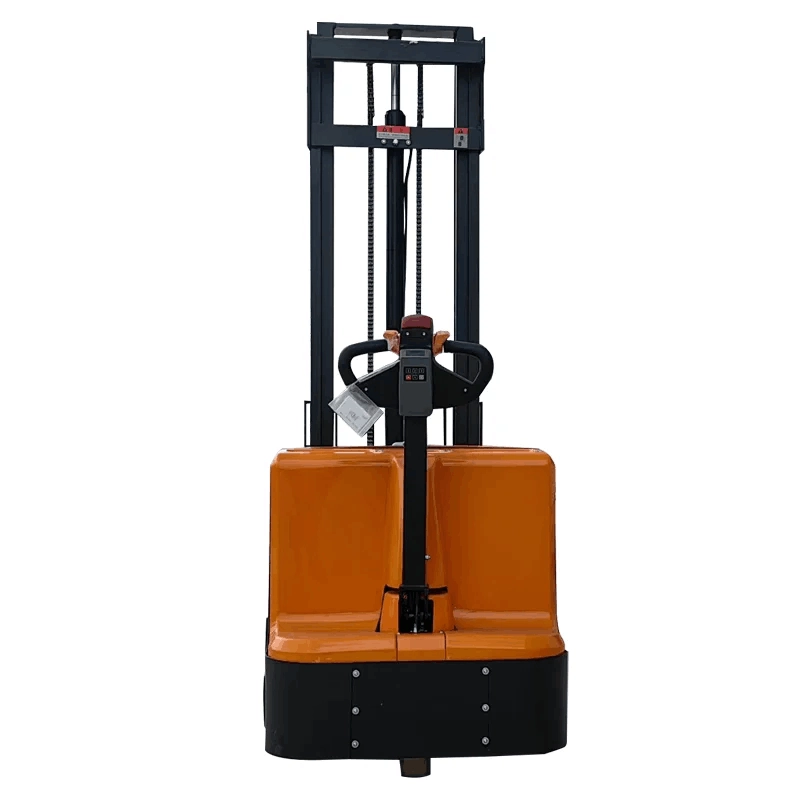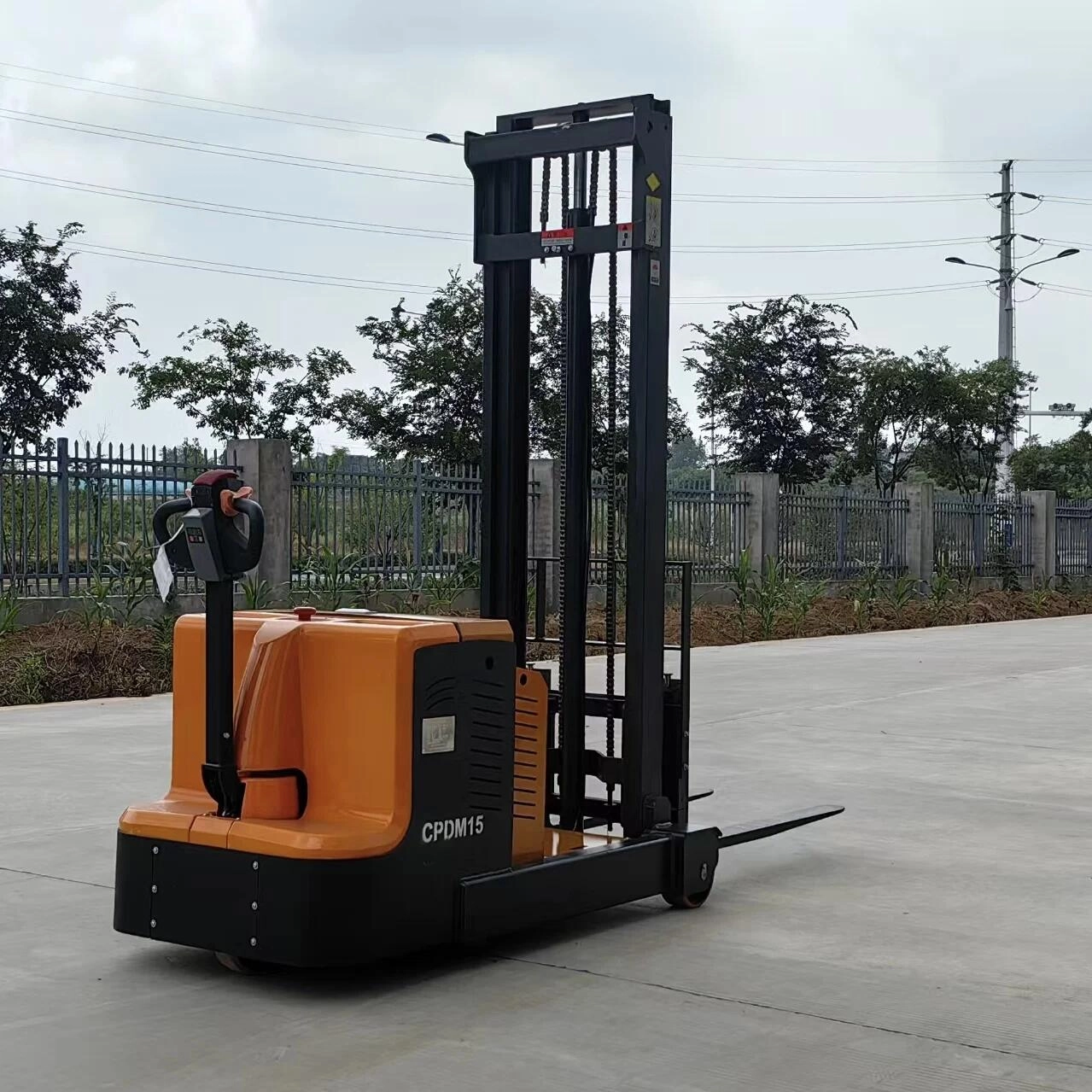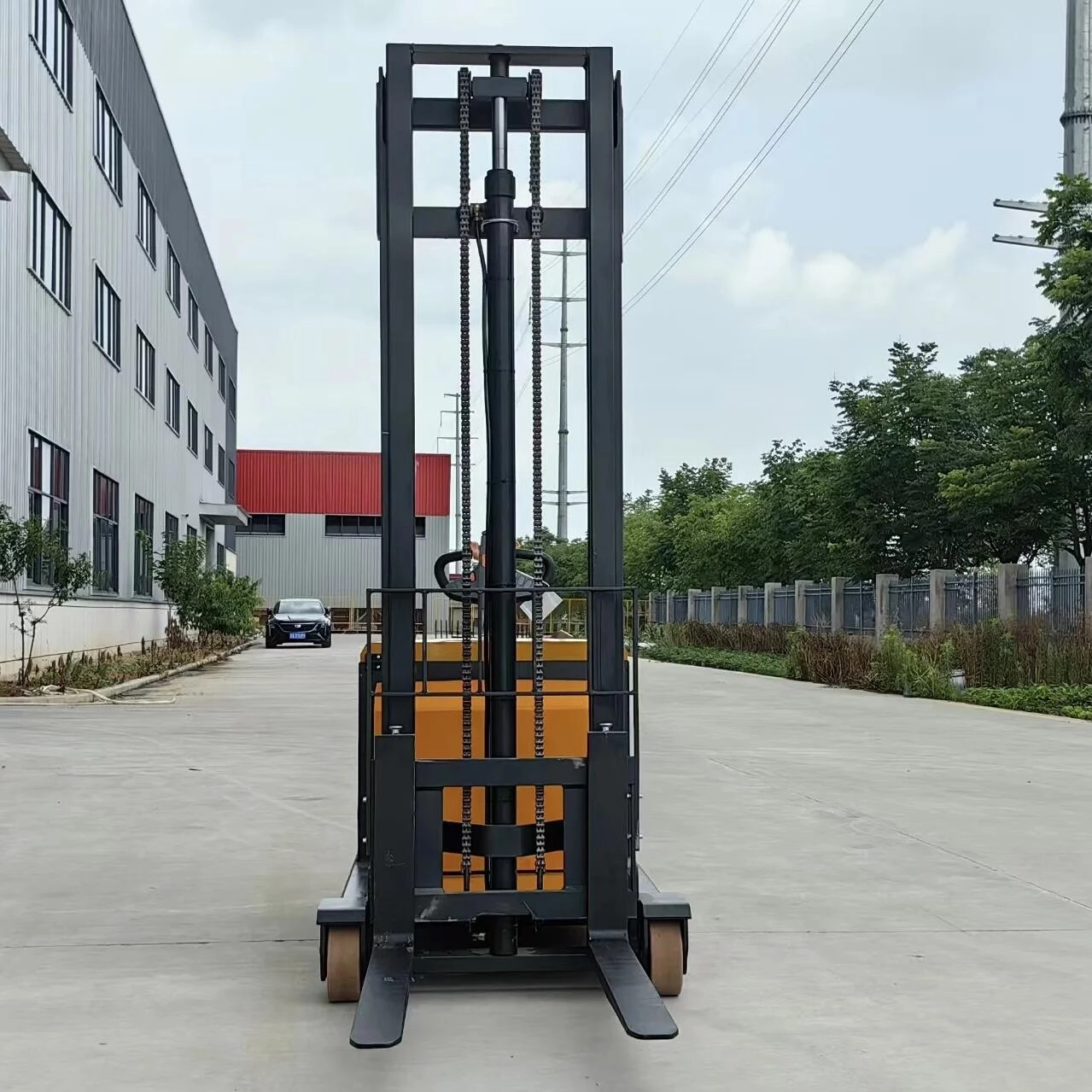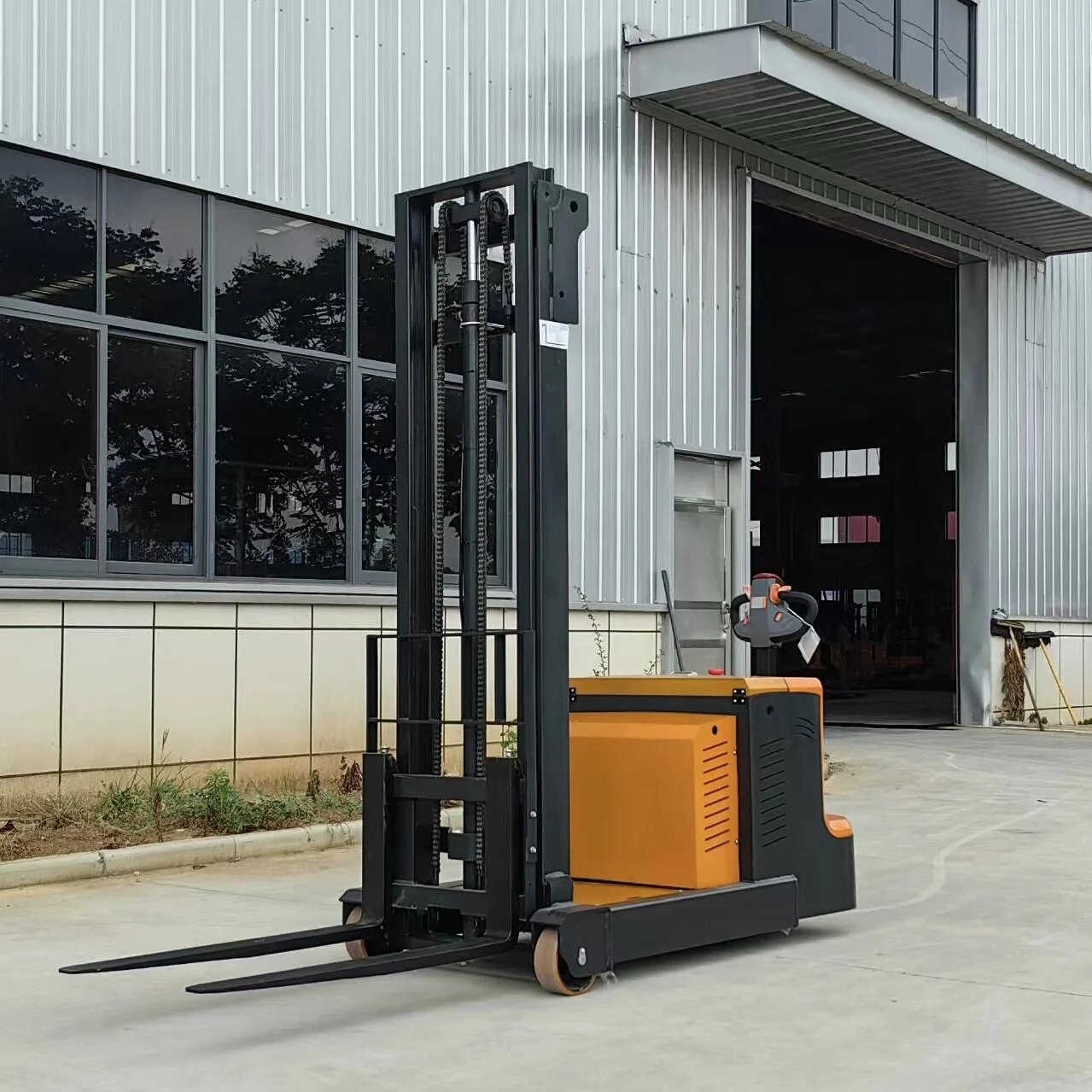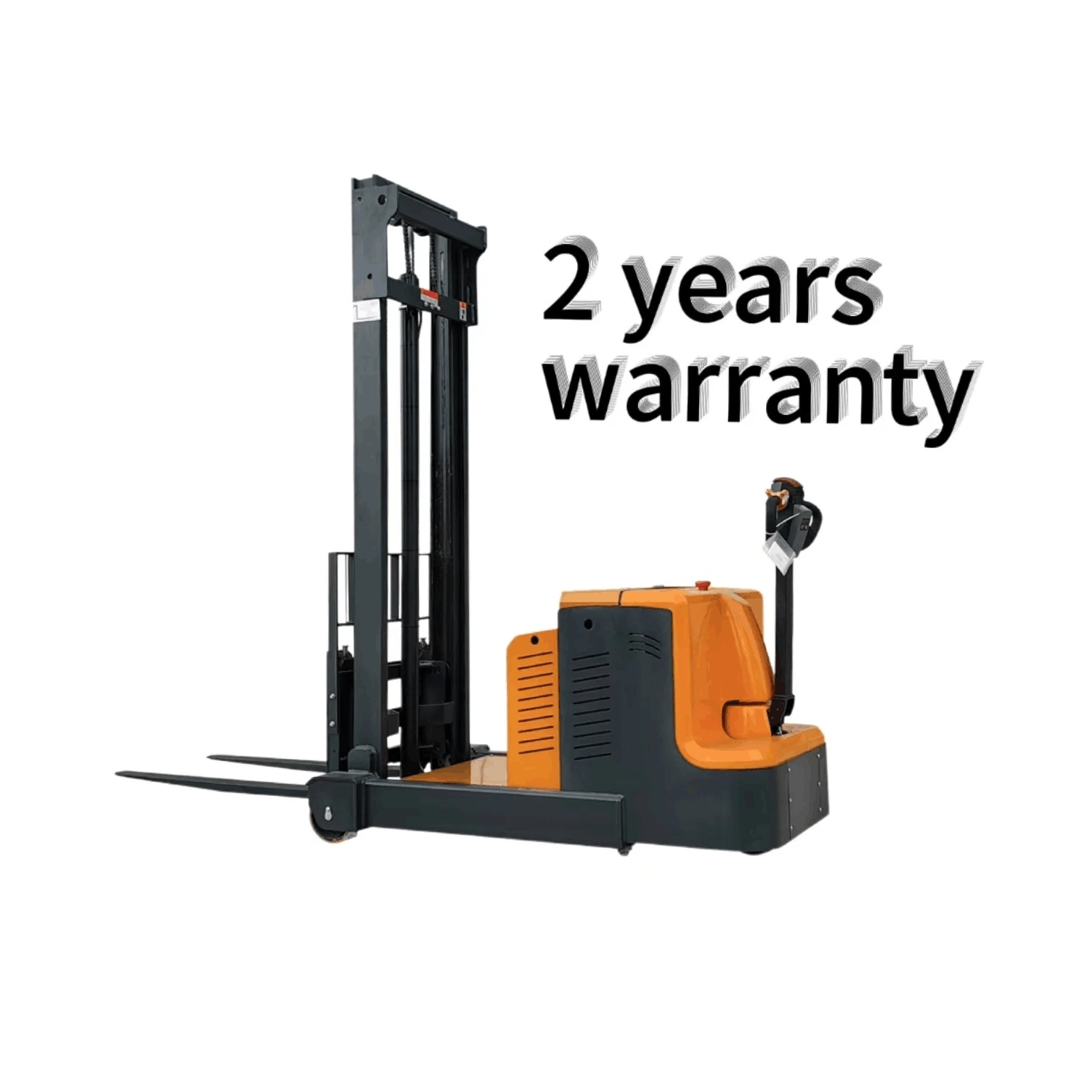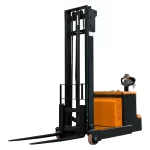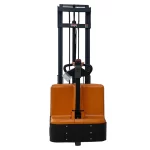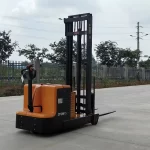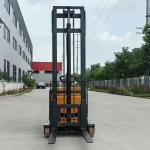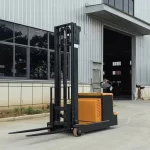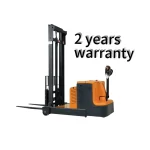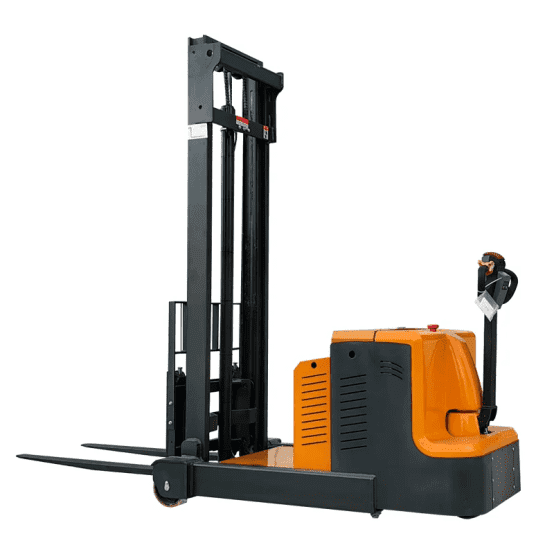
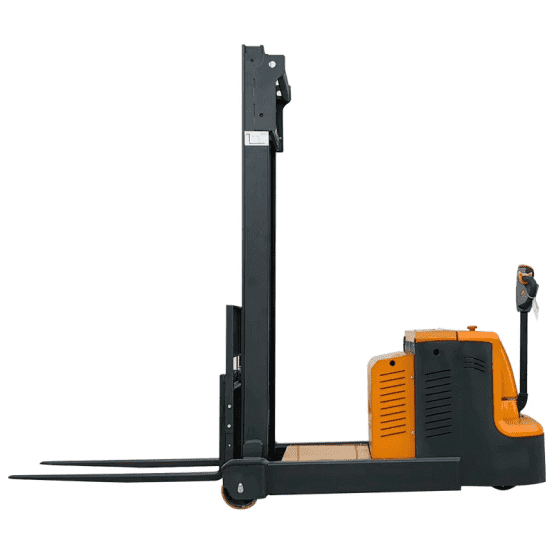
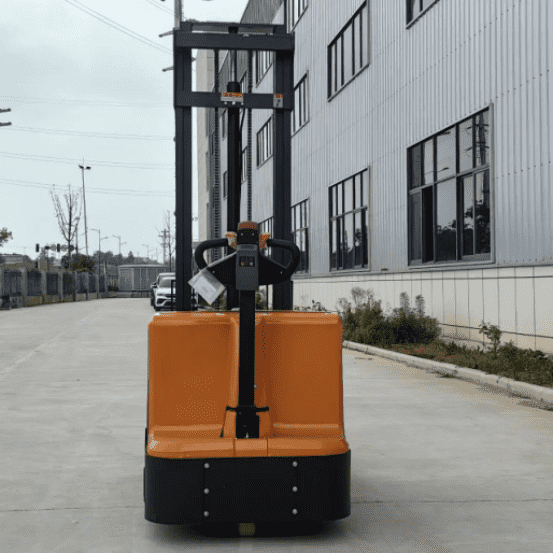
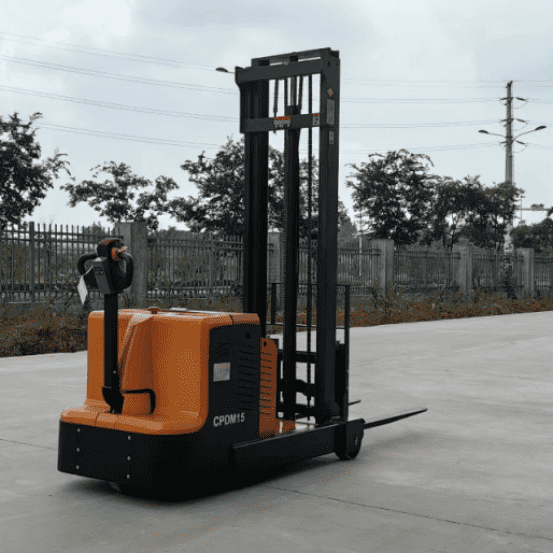
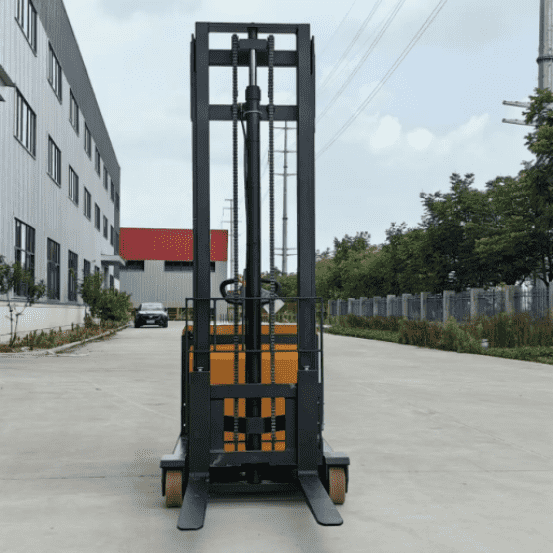
Electric counterweight stacker description
Electric counterweight stacker is a type of material handling equipment designed for lifting and transporting goods in various settings, such as warehouses and manufacturing facilities. Here’s a detailed description:
Components and Features:
1.Electric Motor:
Power Source: Operates on electric power, typically from batteries, making it more environmentally friendly and quieter compared to internal combustion engines.
Function: Powers the lift mechanism and the drive system.
2.Counterweight:
Purpose: Located at the rear of the stacker, this heavy mass provides balance and stability to counteract the load being lifted at the front.
Design: Ensures that the stacker remains stable during operation, reducing the risk of tipping.
3.Mast:
Structure: The vertical component that allows the stacker to lift and lower loads.
Types: Can vary in design, including single or double masts, depending on the lift height and capacity requirements.
4.Forks:
Function: Attach to the mast and are used to pick up and move pallets or other loads.
Adjustability: Often adjustable to handle different load sizes.
5.Control System:
Operation: Typically includes a handle or control panel for steering, lifting, and lowering.
Features: May offer advanced controls for precision and ease of operation.
6.Wheels:
Design: Usually equipped with a combination of driving and steering wheels, often featuring cushioned or rubberized surfaces for smooth movement.
Advantages:
Applications:
Electric counterweight stackers are used in various industries for tasks such as:
Overall, an electric counterweight stacker is an essential tool for efficient material handling, offering a balance of power, stability, and environmental benefits.
Warehouse Operations: Stacking and retrieving goods from shelves.
Manufacturing: Moving materials and components within production areas.
Retail: Handling stock in large retail environments.
Maneuverability: Compact design allows for efficient operation in tight spaces and narrow aisles.
Eco-Friendly: Electric power reduces emissions and noise, contributing to a cleaner work environment.
Cost-Efficiency: Lower operating costs compared to fuel-powered stackers, with reduced maintenance requirements.
User-Friendly: Often designed with ergonomic controls for ease of use.

